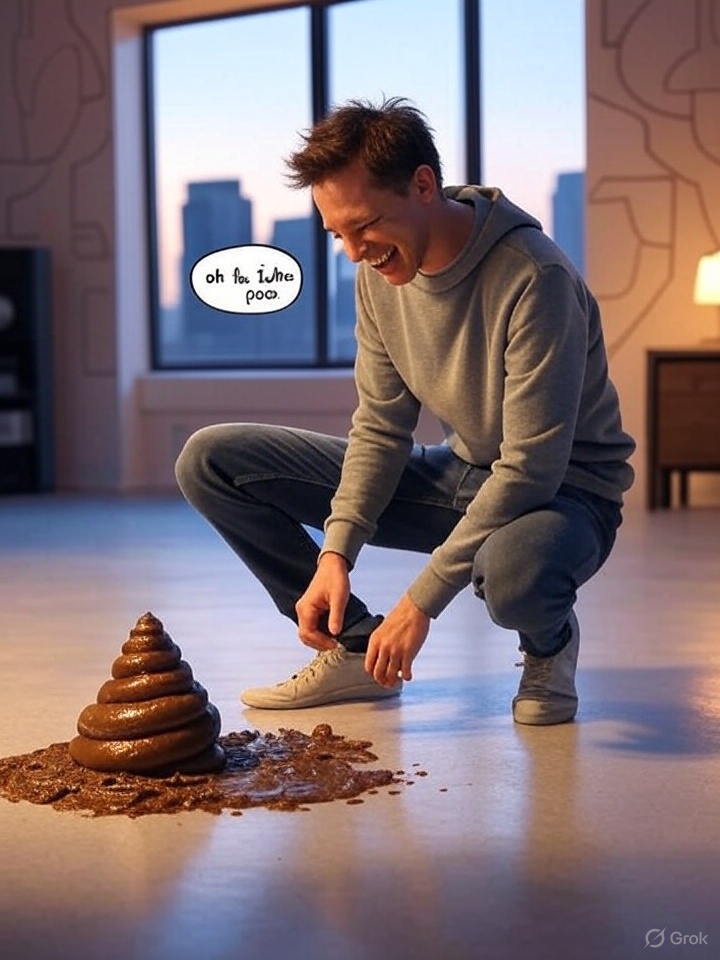He leisurely browses the items on display and is about to leave when he notices a cute cat drinking milk from an expensive, albeit a bit dirty porcelain saucer by the door.
Eyeing the saucer’s value, he turns to the shopkeeper:
“Hello, sir. You have such a lovely cat in your shop, and I’m a lonely man – no wife, no kids, no pets. Would you consider giving her to me?”
“I can’t. The neigbour kids love this cat; they come to feed her and play with her.”
“Oh, but she’s really stolen my heart. I’m sure we’d get along, and she’d be happy at my place. I can offer 20 shekels.”
“No way, she’s not for sale.”
They eventually settle on 200 shekels. The man picks up the cat and says:
“I noticed this cat loves drinking from that saucer over there. She’s probably attached to it. Would you throw it in?”
“I can’t.”
“Maybe 20 shekels more?”
“No, no. It's a very expensive 12th-century Chinese porcelain with gold detailing and precious stones. It’s worth a fortune. But 200-shekel cats? I’ve already sold about 15 of them.”
Joke Poo: The Compost King
A novice gardener walks into a gardening supply store.
He slowly examines the various tools and fertilizers, almost leaving before he spots a lush, vibrant tomato plant drinking nutrient-rich water from a cracked, but ornate terracotta pot near the entrance.
Recognizing the pot’s age and potential value, he approaches the store owner:
“Good day, sir. You have such a beautiful tomato plant in your store, and I’m a struggling gardener – no green thumb, no decent harvest, no luck with plants. Would you consider selling it to me?”
“I can’t. The local garden club uses this plant as inspiration; they come by to admire it and learn from it.”
“Oh, but it’s truly captivated me. I’m sure it would flourish under my care, and be happy in my garden. I can offer 5 dollars.”
“Absolutely not, it’s not for sale.”
They eventually agree on 50 dollars. The man carefully lifts the tomato plant and says:
“I noticed this plant loves drinking from that pot over there. It seems to thrive in it. Would you include it?”
“I can’t.”
“Maybe 5 dollars more?”
“No, no. It’s a priceless Roman artifact, discovered with an old farmer on the outskirts of Pompeii, worth more than all the plants here together! But 50-dollar tomato plants? I’ve sold about 8 of them today already.”
Alright, let’s break down this joke and then inject some comedic vitamins to make it even funnier.
Joke Dissection:
- Core Concept: The joke hinges on a clever switcheroo. The initial impression is that the man wants the cat, but the punchline reveals he’s been after the valuable saucer all along, using the cat as a vehicle for acquisition.
- Humor Source: The humor stems from:
- Deception: We, the audience, are initially fooled.
- Stereotype Subversion: It plays on the stereotypical association of Jewish people with shrewd bargaining, but the twist is that the antique shop owner is even more shrewd.
- Unexpected Scale of the Con: The punchline suggests the shop owner has been running this scheme repeatedly.
- Key Elements: Cat, Antique Shop, Shekels (money), Valuable Saucer, Bartering, Deception/Scheme.
Comedic Enrichment and New Humor:
Here’s how we can build on this:
Option 1: “Did You Know?” with a Humorous Twist
“Did you know that genuine 12th-century Chinese porcelain, like the kind in that joke, can fetch millions at auction? Of course, that’s before a slightly damp cat uses it as a glorified milk bowl. Authenticity papers? Yeah, right next to the paw print identification form.”
- Why it works: It emphasizes the absurdity of the antique shop owner’s scheme by highlighting the actual value of the porcelain, while also bringing out more irony related to the real cost of cat ownership!
Option 2: Alternative Ending
The man picks up the cat and says, “I noticed this cat loves drinking from that saucer over there. She’s probably attached to it. Would you throw it in?”
“I can’t,” the shopkeeper says, “it’s a priceless antique. Look, I’ll make you a deal. You can have the cat and the saucer. But I get to name the cat. Deal?”
The man, suspiciously excited, agrees.
As the man leaves with his cat and saucer, the shopkeeper calls out, “Goodbye, ‘Depreciating Asset!'”
- Why it works: Plays on the financial literacy stereotypes while giving the shopkeeper a comedic victory.
Option 3: Short Joke Setup/Punchline
“Why did the Jewish man buy a cat at the antique store? To get a 12th-century porcelain saucer. What did the shopkeeper buy? A new boat – with the proceeds from selling the cat milk scheme.”
- Why it works: More succinct, with a focus on the absurdity of the owner’s business model.
Option 4: Observation / One-Liner
“You know you’ve found a truly savvy businessman when he’s figured out how to monetize both antique Chinese porcelain and the primal instincts of a stray tabby.”
- Why it works: Short, punchy, and highlights the ridiculousness of the situation.
Option 5: (Playing on the Shekel)
A tourist walks into the store and sees the same cat drinking milk from the same saucer. “How much for the cat?” he asks.
“200 shekels,” replies the shopkeeper.
The tourist pays and then asks, “And the saucer?”
“Oh, that’s not for sale,” says the shopkeeper. “It’s my best shekel generator!”
- Why it works: Directly plays on the shekel as a key element while maintaining the character of the shopkeeper.


